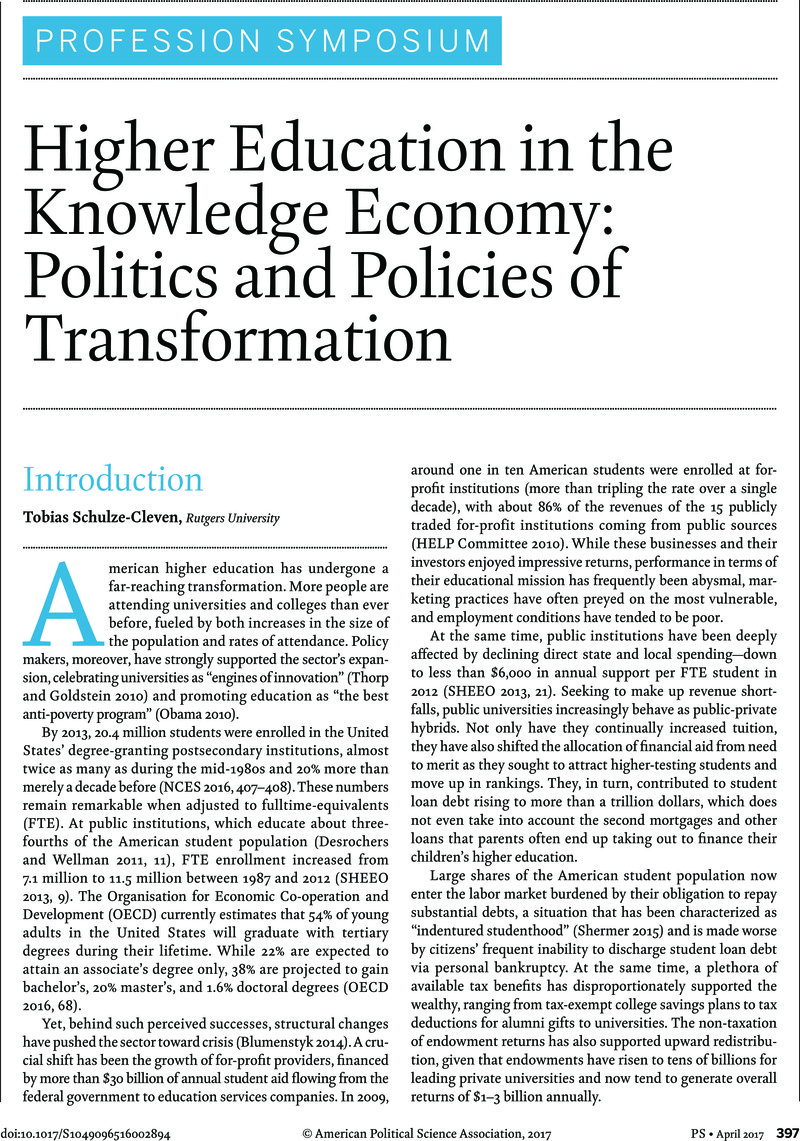Crossref Citations
This article has been cited by the following publications. This list is generated based on data provided by Crossref.
Schulze-Cleven, Tobias
and
Olson, Jennifer R.
2017.
Worlds of higher education transformed: toward varieties of academic capitalism.
Higher Education,
Vol. 73,
Issue. 6,
p.
813.
Schulze-Cleven, Tobias
Reitz, Tilman
Maesse, Jens
and
Angermuller, Johannes
2017.
The new political economy of higher education: between distributional conflicts and discursive stratification.
Higher Education,
Vol. 73,
Issue. 6,
p.
795.
Schulze-Cleven, Tobias
2020.
Organizing Competition: Regulatory Welfare States in Higher Education.
The ANNALS of the American Academy of Political and Social Science,
Vol. 691,
Issue. 1,
p.
276.
Musselin, Christine
2021.
University Governance in Meso and Macro Perspectives.
Annual Review of Sociology,
Vol. 47,
Issue. 1,
p.
305.



